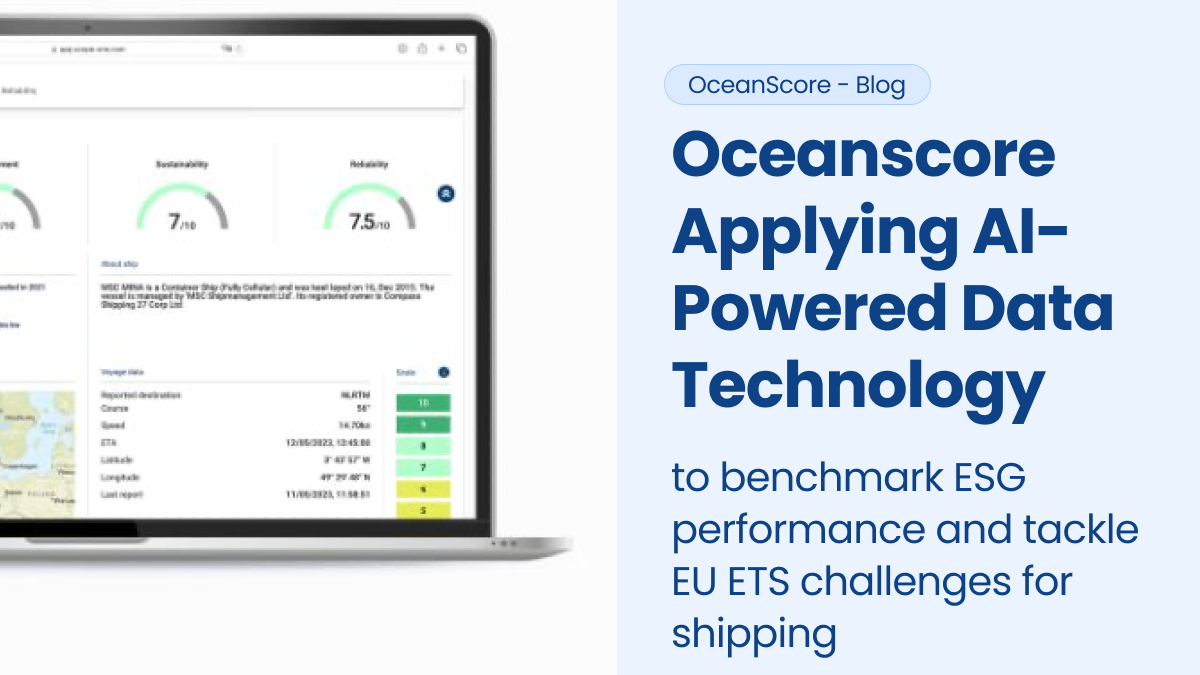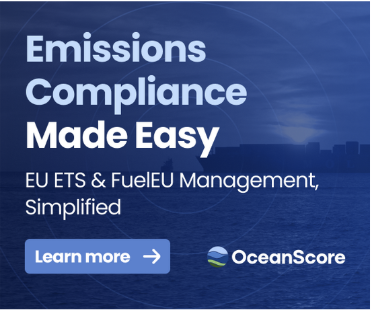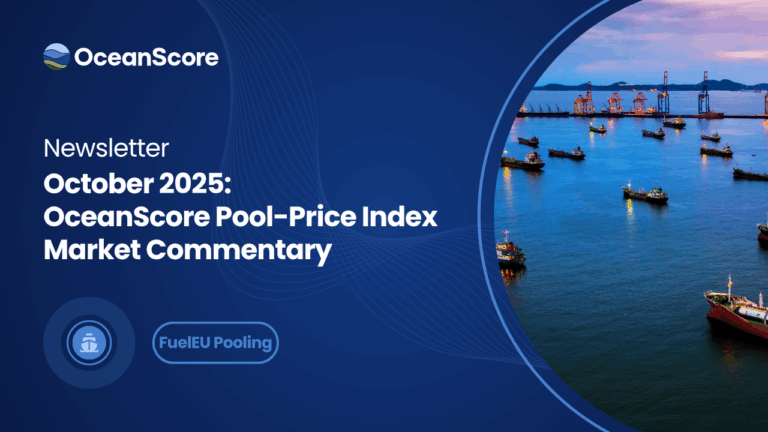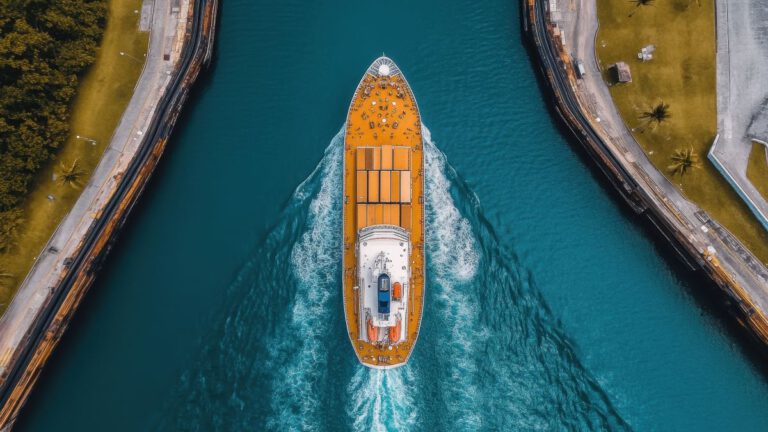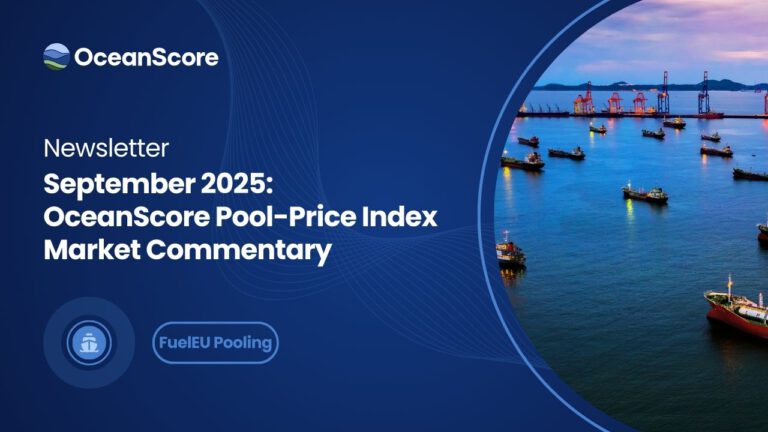OceanScore applying AI-powered data technology to benchmark ESG performance and tackle EU ETS challenges for shipping
The accelerating trend towards sustainability in shipping is being driven not only by regulatory requirements but also by competitive pressure. And the ability to benchmark fleet performance against key ESG metrics will be a vital factor for future commercial success in an increasingly green-focused market, according to maritime data and technology firm OceanScore.
“While many shipping companies are promoting Environmental, Social and Governance (ESG) strategies to raise their profile in the market, this needs to be supported by reliable, trustworthy and transparent data that enables stakeholders to make commercial decisions based on actual fleet performance,” says Albrecht Grell, co-Managing Director of OceanScore.
Whereas price and profitability have previously been the key determinants of charter awards, financing and investments, ESG data represents the new green currency that will determine value creation for shipping companies going forward amid stricter regulations and commercial pressure, Grell believes.
“There are increasing demands from banks, financial institutions and investors for ESG data to inform their decision-making as well as from charterers and cargo owners, underpinned by market initiatives such as the Poseidon Principles for banks and Sea Cargo Charter for bulk ship charterers geared to decarbonising the entire supply chain of shipping,” he says.
Trustworthy and transparent data
Recognising this need, Hamburg-based OceanScore has built a digital platform that monitors the performance of the entire global fleet of 125,000 commercial vessels, enabling diverse industry stakeholders to benchmark ship operations against sustainability goals.
The AI-powered platform uses proprietary engineering algorithms and advanced regression models to analyse data from multiple sources, including MRV and other reported vessel data.
As well as comprehensively tracking emissions (CO2, SOx, NOx and PM), the platform records a further 50 ESG scores around vessel safety and reliability, environmental performance and adherence to the United Nations Sustainable Development Goals (SDGs). These include, for example, wage levels for crew and vessel safety incidents.
Grell says OceanScore is working with Scope Ratings, Europe’s leading ratings agency, to provide independent validation of its scores. “This is part of the platform’s transparency policy to ensure objective, unbiased and high-quality data that can be trusted,” he explains.
Therefore, its data provides a sound basis for decision-making for ship managers, cargo owners, ports, banks, investors, insurers, P&I clubs and other stakeholders. The platform is also designed to facilitate collaboration and data-sharing among industry players, providing a single source of verified data visible to all parties for tracking vessel and ship managers’ sustainability.
Strong investment backing
“This makes OceanScore a one-stop shop for stakeholders such as ports that need to determine the emission levels of multiple vessels from different ship owners and managers or cargo owners that need to assess the carbon footprint of different fleets to ensure they remain within their sustainability targets,” Grell explains.
OceanScore recently gained a strong endorsement for its solution with an oversubscribed seed funding round that saw several high-profile investors commit capital for expansion of the platform, including global container shipping giant MSC as well as Döhle Group, the Schoeller family (shareholders in Columbia Shipmanagement and Scope Ratings), TecPier and Israel’s theDOCK.
MSC’s Group President Diego Aponte says: “We have decided to leverage OceanScore to provide better visibility on the environmental and broader sustainability performance of ships in our fleet.”
New investor theDOCK’s Nir Gartzman says: “OceanScore’s analyses are predicated on advanced data science and deep engineering expertise to provide effective decision-support tools to optimise sustainable fleet management. This gives us a high level of confidence in its solution.”
Heavy financial risk from EU ETS
Grell says a major concern for the industry is implementation from next year of the EU Emissions Trading System (EU ETS) for shipping that will impose a higher level of emissions accountability for companies extending beyond annual reporting under the existing MRV regime, with the risk of heavy financial penalties or even expulsion from EU trading in the event of non-compliance.
This means shipping companies will be required to acquire and trade so-called EU Allowances (EUAs), or carbon credits, to cover the cost of their emissions in a given year, which could leave them with huge financial liabilities given a current market price of around €90 per tonne of CO2 emitted.
OceanScore’s co-Managing Director Ralf Garrn explains the regulation poses issues such as how to accurately monitor emissions, how to acquire and trade EUAs, which trading platform to use, how to achieve the best price, how many EUAs should be purchased and who should pay for carbon credits.
“With the clock ticking to implementation of the EU ETS, shipping companies need to understand the practical implications and initiate efficient systems to address these issues and ensure compliance. A solid monitoring solution, properly covering the many different options to deal with the ETS regime, is a necessity given the complexities of shipping and the ETS regulation,” he said.
Emissions management and trading solution
Therefore, in a further evolution of the platform, OceanScore has now launched an integrated solution that enables ship operators both to manage emissions liabilities and trade carbon credits under the impending EU ETS regime for shipping.
The web-based ETS Manager is designed to manage and monitor the entire process from automatically ingesting vessel operational data, assessing the need for EUAs, allocating them to owners or stakeholders, requesting and accounting for them, and tracking open positions.
It incorporates the advanced trading tool EUA Trader, powered by RWE Supply & Trading, to buy and sell EUAs, which is also available as a standalone application.
EUA Trader tracks the market price of EUAs and facilitates buying and selling of carbon credits on the RWE Supply & Trading platform through a simple operation that is fully integrated into OceanScore’s ETS management platform, with the ability to buy incremental volumes as needed and forward trading flexibility to hedge the risk of price changes.
Grell says the ETS Manager is rapidly gaining traction among both European and non-European clients ahead of the three-year phased implementation of the EU ETS from 1 January 2024, with OceanScore investor Döhle Group among several pilot customers.
“The industry faces a major challenge to navigate the complexity of the new regulation and mitigate financial risk due to the requirement to purchase carbon credits to cover the cost of emissions, which will reach €8 billion or more annually,” he says.
“The interplay between owners, managers and charterers creates significant complexities unique to shipping and poses potentially significant risks, especially for ship managers, if not managed properly. Excel alone will not be sufficient to maintain transparency and control of these processes.”
Grell says OceanScore’s comprehensive solution, with a high level of automation to reduce administrative workload and possible issues with wrong data entries, is geared to “simplifying complexity” for shipping companies to help them navigate the difficult path to EU ETS compliance.
“Harnessing the power of new AI-driven technology to process vast volumes of vessel data will be vital to enable shipping to meet market and regulatory challenges in the relentless green shift for decarbonisation of the industry,” he concludes.
About OceanScore
OceanScore is a Hamburg-based provider of sustainability data and compliance solutions with a strong maritime background. The company offers a range of ESG solutions tailored to the industry’s unique needs.
Contact information:
Albrecht Grell, co-Managing Director, OceanScore.
Email: albrecht.grell@oceanscore.com
